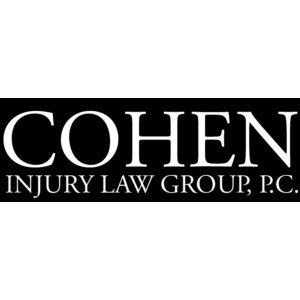Best Workers Compensation Lawyers in California
Share your needs with us, get contacted by law firms.
Free. Takes 2 min.
Or refine your search by selecting a city:
List of the best lawyers in California, United States
About Workers Compensation Law in California, United States
Workers Compensation is a state-mandated insurance program that offers medical benefits and wage replacement to employees injured on the job. In California, these laws are designed to ensure that workers who become injured or ill as a result of their work are properly cared for without the need for litigation. Employers in California are generally required to carry Workers Compensation insurance. The system operates on a no-fault basis, meaning employees do not have to prove their employer was at fault for their injury to receive benefits.
Why You May Need a Lawyer
Although California's Workers Compensation system is meant to provide straightforward access to benefits, legal complexities often arise. You may need a lawyer if you face any of the following situations:
- Your Workers Compensation claim is denied or delayed.
- The benefits you're receiving do not adequately cover your medical expenses or lost wages.
- Your employer retaliates against you for filing a claim.
- There are disputes over the seriousness or cause of your injury.
- An employer or insurance company pressures you to return to work prematurely.
- You have a pre-existing medical condition that complicates your case.
- You need help negotiating a fair settlement.
Legal guidance helps ensure your rights are protected and that you receive the full benefits you're entitled to under California law.
Local Laws Overview
California has some of the most comprehensive Workers Compensation laws in the United States. Key aspects include:
- All employers in California must carry Workers Compensation insurance, even if they only have one employee.
- Benefits may include medical care, temporary disability benefits, permanent disability benefits, supplemental job displacement benefits, and death benefits for surviving dependents.
- Employees must report their work-related injury or illness to their employer within 30 days to avoid losing the right to receive benefits.
- The claims process is regulated by the Division of Workers' Compensation (DWC), which adjudicates disputes and oversees the provision of benefits.
- California law prohibits employers from retaliating against employees who file Workers Compensation claims.
- Some injuries and illnesses related to repetitive motion, exposure to toxins, or emotional stress may also be covered, not just accidents.
Frequently Asked Questions
What should I do if I am injured at work?
Report the injury or illness to your employer as soon as possible, and seek medical treatment. Prompt reporting is crucial for your claim to be considered valid.
Do I need to prove fault to get Workers Compensation benefits?
No. California’s system is no-fault, so employees do not have to prove that the employer caused the injury to qualify for benefits.
What benefits can I receive under Workers Compensation?
Depending on your case, you may be entitled to medical care, temporary disability payments, permanent disability benefits, job retraining vouchers, and death benefits for dependents.
What if my claim is denied?
You have the right to appeal. Consider speaking with a Workers Compensation attorney who can help you request a hearing before a judge at the local Workers Compensation Appeals Board.
Can my employer fire me for filing a Workers Compensation claim?
No. It is illegal for an employer to retaliate or discriminate against you for filing a claim. If this happens, you may have additional legal remedies available.
How long do I have to report an injury?
Generally, you must report your injury within 30 days of its occurrence or discovery. Waiting too long can jeopardize your eligibility for benefits.
Can I choose my own doctor?
Initially, your employer may require you to see a doctor within their network, but under certain conditions, you may be able to switch doctors after a specified period or if you pre-designated your physician before the injury.
What are permanent disability benefits?
Permanent disability benefits are payments for workers who have lasting effects from their work injury that limit their ability to earn a living, even after reaching maximum medical improvement.
Are all illnesses related to work covered?
Most injuries and illnesses directly caused or aggravated by work may be covered, including repetitive stress injuries, occupational diseases, and even some psychological conditions.
Is legal representation required for Workers Compensation cases?
Legal representation is not required, but it is often helpful, especially if your case is complex, your claim is disputed, or if you are unsure about your rights and entitlements.
Additional Resources
- California Division of Workers' Compensation (DWC): Oversees the administration of claims, offers forms, resources, and information for both employers and employees.
- California Department of Industrial Relations (DIR): Provides comprehensive guides, legal updates, and contact information for related services.
- Local Legal Aid Societies: Many communities in California have legal aid organizations that provide free or low-cost consultations for injured workers.
- Local Bar Associations: Bar associations can help you find attorneys who specialize in Workers Compensation law.
Next Steps
If you need legal assistance with a Workers Compensation issue in California, consider the following actions:
- Report your injury to your employer and seek necessary medical attention immediately.
- Keep detailed records of your injury, medical treatment, and any communication with your employer or their insurance carrier.
- Contact the California Division of Workers' Compensation for information or to file a dispute.
- If you face challenges or your claim is denied, consult with a qualified California Workers Compensation attorney to discuss your rights and legal options.
- Use local resources, such as legal aid organizations or the state’s attorney referral services, to find legal representation if needed.
Taking prompt and informed action can make a significant difference in the outcome of your Workers Compensation case.
Lawzana helps you find the best lawyers and law firms in California through a curated and pre-screened list of qualified legal professionals. Our platform offers rankings and detailed profiles of attorneys and law firms, allowing you to compare based on practice areas, including Workers Compensation, experience, and client feedback.
Each profile includes a description of the firm's areas of practice, client reviews, team members and partners, year of establishment, spoken languages, office locations, contact information, social media presence, and any published articles or resources. Most firms on our platform speak English and are experienced in both local and international legal matters.
Get a quote from top-rated law firms in California, United States — quickly, securely, and without unnecessary hassle.
Disclaimer:
The information provided on this page is for general informational purposes only and does not constitute legal advice. While we strive to ensure the accuracy and relevance of the content, legal information may change over time, and interpretations of the law can vary. You should always consult with a qualified legal professional for advice specific to your situation.
We disclaim all liability for actions taken or not taken based on the content of this page. If you believe any information is incorrect or outdated, please contact us, and we will review and update it where appropriate.
Browse workers compensation law firms by city in California
Refine your search by selecting a city.
















